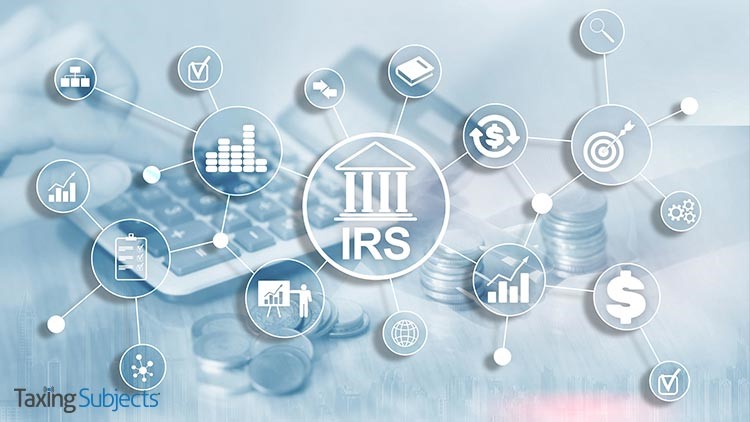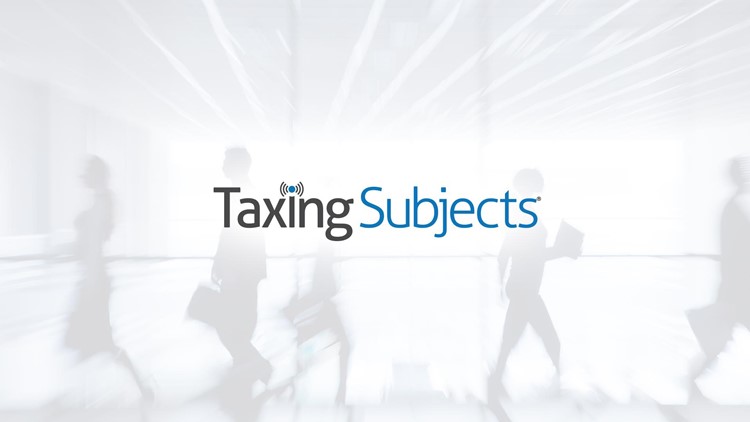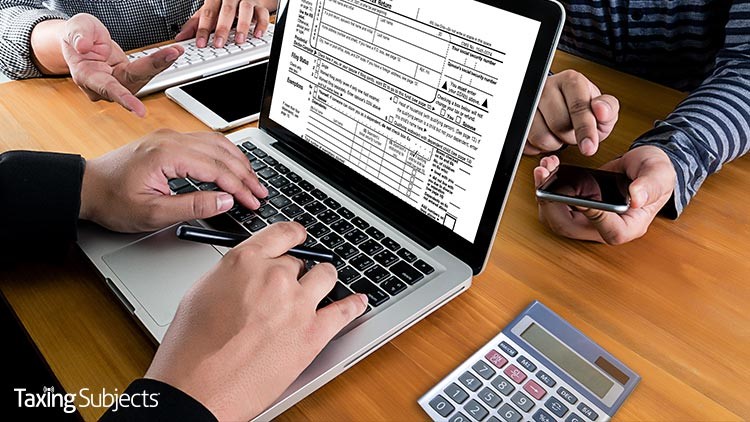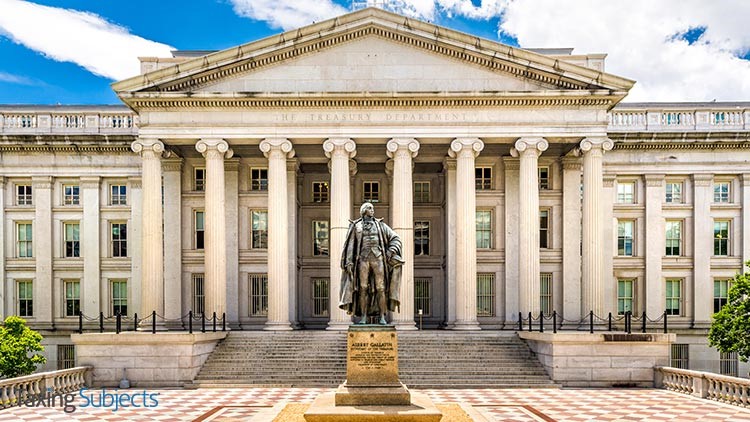by | Mar 31, 2020 | Tax Tips and News
As taxpayers face multiple challenges posed by the COVID-19 outbreak, the IRS has unveiled a large series of steps providing relief on a number of fronts, ranging from easing payment guidelines to postponing compliance actions.
“The IRS is taking extraordinary steps to help the people of our country,” said IRS Commissioner Chuck Rettig. “In addition to extending tax deadlines and working on new legislation, the IRS is pursuing unprecedented actions to ease the burden on people facing tax issues. During this difficult time, we want people working together, focused on their well-being, helping each other and others less fortunate.”
Retting said the People First Initiative provides immediate relief to help people facing uncertainty over taxes. “We are temporarily adjusting our processes to help people and businesses during these uncertain times. We are facing this together, and we want to be part of the solution to improve the lives of all people in our country,” the commissioner added.
People First includes changes on issues ranging from postponing installment agreement-related payments and offers in compromise to collection and limiting certain enforcement actions.
The initiative projects a starting date of April 1 and initially runs through July 15. During this time the IRS will avoid in-person contacts as much as possible to limit the spread of the virus.
While specifics of the initiative are still being nailed down, an IRS release had some details about some of the programs affected by this new move:
Existing Installment Agreements
For taxpayers under an existing Installment Agreement, payments due between April 1 and July 15, 2020 are suspended. Taxpayers who are currently unable to comply with the terms of an Installment Payment Agreement, including a Direct Deposit Installment Agreement, may suspend payments during this period if they prefer. Furthermore, the IRS will not default any Installment Agreements during this time. By law, however, interest will continue to accrue on any unpaid balances.
New Installment Agreements
The IRS reminds people unable to fully pay their federal taxes that they can resolve outstanding liabilities by entering into a monthly payment agreement with the IRS. See IRS.gov for further information.
Offers in Compromise (OIC)
The IRS is taking several steps to assist taxpayers in various stages of the OIC process:
- Pending OIC applications – The IRS will allow taxpayers until July 15 to provide requested additional information to support a pending OIC. In addition, the IRS will not close any pending OIC request before July 15, 2020, without the taxpayer’s consent.
- OIC Payments – Taxpayers have the option of suspending all payments on accepted OICs until July 15, 2020, although by law interest will continue to accrue on any unpaid balances.
- Delinquent Return Filings – The IRS will not default an OIC for those taxpayers who are delinquent in filing their tax return for tax year 2018. However, taxpayers should file any delinquent 2018 return (and their 2019 return) on or before July 15, 2020.
Non-Filers Need to Get Current
Those who have not filed their tax returns for years before 2019 should file their delinquent returns. More than a million households haven’t filed during the last three years, yet are owed refunds. They still have time to claim those refunds.
The IRS recommends contacting a tax pro to tap into the options available for these late filers. Time, however, is limited by law. The IRS says once delinquent returns have been filed, taxpayers with tax liabilities should resolve any outstanding tax due and take advantage of the IRS’ Installment Agreement or an Offer in Compromise to get a “Fresh Start.” Check IRS.gov for details.
Other areas included in the IRS People First Initiative include modifications to field collection activities and automatic liens.
Liens and levies (including any seizures of a personal residence) initiated by field revenue officers will be suspended during the initiative. However, field revenue officers will continue to pursue high-income non-filers and perform other similar activities where warranted.
New automatic, systemic liens and levies will be suspended while the initiative is in place.
Passport certifications are also covered. IRS will suspend new certifications to the Department of State for taxpayers who are “seriously delinquent” during this period. These taxpayers are encouraged to submit a request for an Installment Agreement or, if applicable, an OIC during this period. Certification prevents taxpayers from receiving or renewing passports.
Debt collection efforts by private contractors will be on hold during the period. The IRS says it will generally not start new field, office or correspondence examinations during the period. They will continue to work refund claims where possible without face-to-face contact. Some new examinations, however, may be started where the statute of limitations is a factor.
For a full listing of the proposed actions during the initiative period, see the IRS People First Initiative release on the IRS website.
– Story provided by TaxingSubjects.com
by | Mar 29, 2020 | Tax Tips and News
Do not respond to phone calls or emails asking for information or payments to process your stimulus check!
The ink hasn’t dried on the $2 trillion Coronavirus Aid, Relief, and Economic Security (CARES) Act passed by Congress this week, but the tax industry is reporting that scammers are already trying to take advantage of taxpayers. Their goal is to capitalize on millions of taxpayers anticipating stimulus money by deploying phone- and email-based phishing scams.
Apparently, scammers posing as IRS representatives are calling and emailing taxpayers to request personally identifiable information or fees that they say are required to qualify for the upcoming stimulus payments. In some cases, the ploy suggests the money is available now, which is not the case. As with other phishing scams, fraudsters intend to use that information to make a quick buck.
The tax industry wants to remind everyone that government representatives will not contact taxpayers seeking information or payments as part of the stimulus payment program. In fact, the only communication planned at this time, according to the CARES Act, is a confirmation letter that will be mailed to taxpayers after the stimulus payments have been distributed.
The CARES Act specifies that the IRS will send letters to taxpayers within 15 days of payments being issued. The letters outline three things:
- How the IRS issued payment
- How much the IRS paid
- How to contact the IRS if payment wasn’t received
Until we learn the details of the IRS’s process for sending stimulus payments, taxpayers should be on high alert for stimulus-related scams.
Those who are targeted by the stimulus scam should report the incident to the Federal Trade Commission as soon as possible. One of the keys to combatting phishing scams is simply knowing that they exist in the first place.
– Story provided by TaxingSubjects.com
by | Mar 28, 2020 | Tax Tips and News
Phone Support for Practitioner Priority Service, e-Services Help Desk, and e-Services FIRE and AIR are temporarily down.
Businesses across the country are grappling with the challenges of limiting social contact, and the Internal Revenue Service is no exception. Presumably taking precautionary measures to limit the spread of COVID-19 at IRS locations, the agency today announced via the Quick Alerts for Tax Professionals newsletter that they were temporarily suspending phone support for certain preparer-related services and processing of Income Verification Services (IVES) requests.
Three tax professional-specific support programs are affected by this closure: “Due to staff limitations, Practitioner Priority Service line, the e-Services Help Desk line, and the e-Services FIRE and AIR system help desks are closed until further notice.” While phone support will be unavailable, the IRS said that preparers could use IRS.gov as an online reference resource.
In addition to not accepting new IVES requests, the IRS said they were “experiencing delays with existing IVES processing as well as CAF number authorizations.” While tax professionals will be unable to use IVES to get transcript information during this time, the IRS suggested an alternative: “Practitioners with e-Services accounts and with client authorization can access the Transcript Delivery System to obtain prior-year transcripts.”
The IRS ended the newsletter by noting they are currently not able to provide information or guidance on the $2 trillion COVID-19 stimulus bill.
Source: 3/27 Update on IRS Services
– Story provided by TaxingSubjects.com
by | Mar 26, 2020 | Tax Tips and News
IRS Taking Steps to Avoid Virus Spread
While the delay of tax deadline day to July 15 has grabbed a lot of headlines, the IRS is continuing to look for ways to avoid spreading the coronavirus.
The agency has shut down all Taxpayer Assistance Centers and discontinued face-to-face service throughout the country until further notice. The IRS says the shutdown is temporary, but will be in effect until it can be safely lifted.
In the meantime, IRS is continuing to process tax returns, issue refunds and help taxpayers to the greatest extent possible. Any taxpayers needing assistance should go online to www.IRS.gov or call the IRS. The agency website cautions that they are seeing higher-than-normal call volumes, so it would be wise to check out the section of the IRS website dealing with assistance calls before dialing.
IRS recommends trying to find answers to questions online first for fastest service.
IRS Online Resources
The Internal Revenue Service has established a special COVID-19 information web page at www.irs.gov/coronavirus, designed to help individuals, businesses and others get the tax information they need relating to the outbreak.
For other information about the COVID-19 virus, people should visit the Centers for Disease Control and Prevention (CDC) (https://www.coronavirus.gov) for health information. Other information about actions being taken by the U.S. government is available at https://www.usa.gov/coronavirus and in Spanish at https://gobierno.usa.gov/coronavirus.
The Department of Treasury also has information available at https://home.treasury.gov/coronavirus.
– Story provided by TaxingSubjects.com
by | Mar 24, 2020 | Tax Tips and News
The Treasury Department, along with the IRS and the U.S. Department of Labor, have unveiled a package of tax credits for small and midsize employers can use to “immediately and fully” reimburse them, dollar-for-dollar, for the cost of providing Coronavirus-related leave to employees.
The relief is provided under the Families First Coronavirus Response Act signed by the President last week.
The new law will help the nation in the fight against COVID-19, giving all American businesses with fewer than 500 employees the funds to provide workers with paid leave, either for the employee’s own health needs or to care for family members. The legislation also will enable employers to keep their workers on the payroll, while at the same time ensuring workers aren’t forced to choose between a paycheck and the public health measures needed to combat the spread of the virus.
Here are the key provisions of the measure:
Paid Sick Leave for Workers
- For COVID-19 related reasons, employees receive up to 80 hours of paid sick leave and expanded paid child care leave when employees’ children’s schools are closed or child care providers are unavailable.
Complete Coverage
- Employers receive 100% reimbursement for paid leave pursuant to the Act.
- Health insurance costs are also included in the credit.
- Employers face no payroll tax liability.
- Self-employed individuals receive an equivalent credit.
Fast Funds
- Reimbursement will be quick and easy to obtain.
- An immediate dollar-for-dollar tax offset against payroll taxes will be provided
- Where a refund is owed, the IRS will send the refund as quickly as possible.
Small Business Protection
- Employers with fewer than 50 employees are eligible for an exemption from the requirements to provide leave to care for a child whose school is closed, or child care is unavailable in cases where the viability of the business is threatened.
Easing Compliance
- Requirements subject to 30-day non-enforcement period for good faith compliance efforts.
- To take immediate advantage of the paid leave credits, businesses can retain and access funds that they would otherwise pay to the IRS in payroll taxes. If those amounts are not sufficient to cover the cost of paid leave, employers can seek an expedited advance from the IRS by submitting a streamlined claim form that will be released next week.
The legislation says employees of eligible employers can get two weeks—up to 80 hours—of paid sick leave at 100% of the employee’s pay. The leave is for employees unable to work
because the worker is quarantined or experiencing virus symptoms and seeking a diagnosis.
An employee who’s unable to work because of a need to care for someone in quarantine, to care for a child whose school is closed or whose child care provider is unavailable due to the virus can receive two weeks (up to 80 hours) of paid sick leave at 2/3 the employee’s pay.
An employee who is unable to work due to a need to care for a child whose school is closed, or child care provider is unavailable for reasons related to COVID-19, may in some instances receive up to an additional 10 weeks of expanded paid family and medical leave at 2/3 the employee’s pay.
For other qualifying reasons, contact the U.S. Department of Health and Human Services.
Paid Sick Leave Credit
For employers, the legislation gives relief when employees have to stay home due to infection, quarantine or self-quarantine, or the wait for a diagnosis. Employers can receive a refundable sick leave credit at the employee’s regular rate of pay, of up to $511 per day or $5,110 total, for a total of 10 days.
In the case of a worker who is caring for someone with the virus, or caring for a child when the child’s school or other facility is closed due to the Coronavirus, employers may claim a refundable credit of up to two-thirds of the employee’s regular rate of pay, up to $200 per day and $2,000 total for up to 10 days.
Eligible employers are entitled to an additional tax credit determined based on costs to maintain health insurance coverage for the eligible employee during the leave period.
For a detailed list of provisions of the Families First Coronavirus Response Act, check out the IRS website.
– Story provided by TaxingSubjects.com





